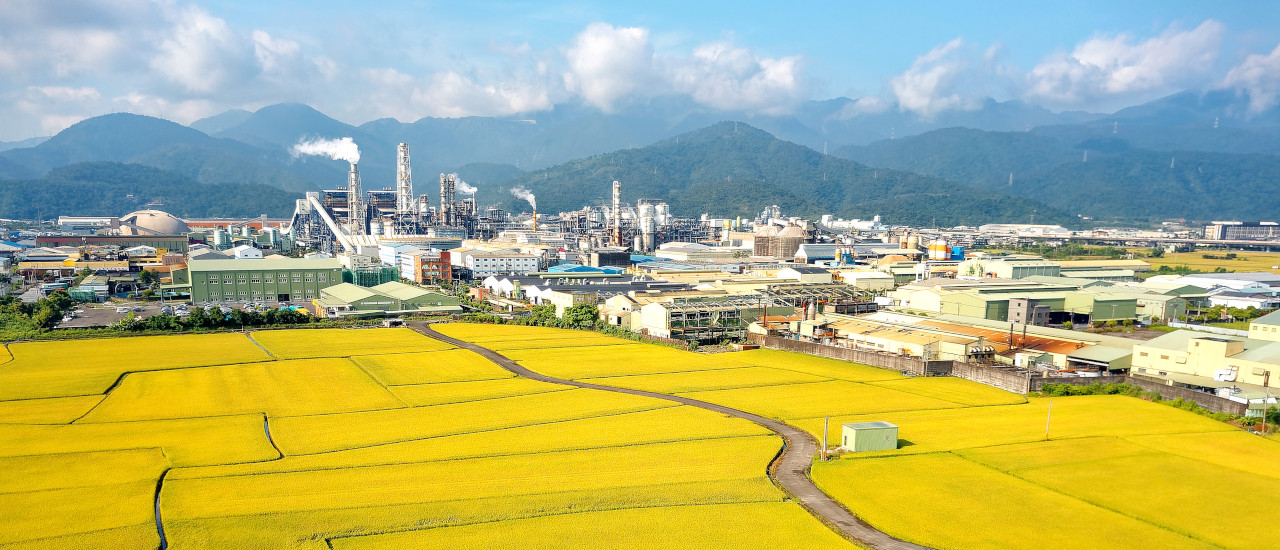
Taiwan Carbon Emissions: Catching up with Zero Carbon Emission Target
The ambitious goal of achieving zero carbon emissions by 2050, set forth by COP21, has spurred significant global efforts to combat climate change. The team at TAK ASSOCIES explain how Taiwan, a key player in electronics manufacturing, has swiftly adopted measures to curb carbon emissions.
With the COP21 (the 21st Conference of the Parties to the United Nations Framework Convention on Climate Change) setting an ambitious target of zero carbon emissions by 2050, it has been interesting to see how countries located far from Europe will adapt. The challenges are crucial because many countries in Asia are involved in manufacturing products for the whole world, starting with Taiwan. Indeed, the so-called Formosa Island is deeply involved in manufacturing and/or assembly of major components for the electronics industry, starting with semiconductors, with Taiwan Semiconductor Manufacturing Company (TSMC) being the world’s biggest high-precision fabrication plant.
In the European Union (EU), the European Climate Law of July 29th 2021 set the goals very clearly, introducing the carbon tax and, among other measures, the Carbon Border Adjustment Mechanism (CBAM) to make EU importers pay for emissions raised outside of the EU between 2026 and 2034.
In response, Taiwan authorities, in order to satisfy their cutting-edge industry, published the Climate Change Response Act on February 15th 2023, establishing:
- targets for lower carbon emissions;
- carbon fees (which are technically different from carbon taxes, as the beneficiary is not the Ministry of Finance but the environment authorities;
- its own CBAM, which applies to products imported into Taiwan (mostly from surrounding countries in Asia);
- a trading place for carbon allowance certificates (just like the EU’s Emission Trade System or ETS); and
- mutual recognition with foreign ETS, so that companies can offset their own certificates already purchased (just like a double taxation treaty would allow).
The Taiwanese system will be detailed in 2024 and will be effective in 2025, the year in which carbon fees will start being levied locally. Today, top tier companies in Taiwan are already ready to address the carbon tax system in the world (EU and soon, probably, the USA), with very professional carbon footprint reports that are likely to be used by their global clients. The second-tier companies are currently being trained through various sessions organized since 2023, and it should be no issue for them to reach the level of awareness and compliance.
It will be very interesting to see what other countries in Asia are currently doing to address this trend, especially those who are the biggest polluters. Taiwan has already signed some agreements with other Asian countries to allow mutual recognition of carbon tax certificates.
Still, there are discrepancies to be considered. While the price of the carbon tax in Europe is closer to €100 per tonne, the price of the carbon fee in Taiwan is expected to be closer to €10. Adjustments may be needed to ensure harmonization for global players who need to ensure visibility of their costs when selling throughout the world.
Although many details remain to be seen, one can see that the trend towards zero carbon emissions is developing very rapidly, and there is no reason why most modern countries should not move forward quickly on this issue, as the COP21 has shown the direction, and this direction is now inevitable.
Contact us:
Pascal Thien-Ah-Koon
TAK ASSOCIES – Member of ECOVIS International
Suite 1B, 21F, No. 77, Section 2, Dun Hwa South Road, Da-An District10682 Taipei
Phone: +886 2 2325 0900
www.ecovis.com/taiwan


